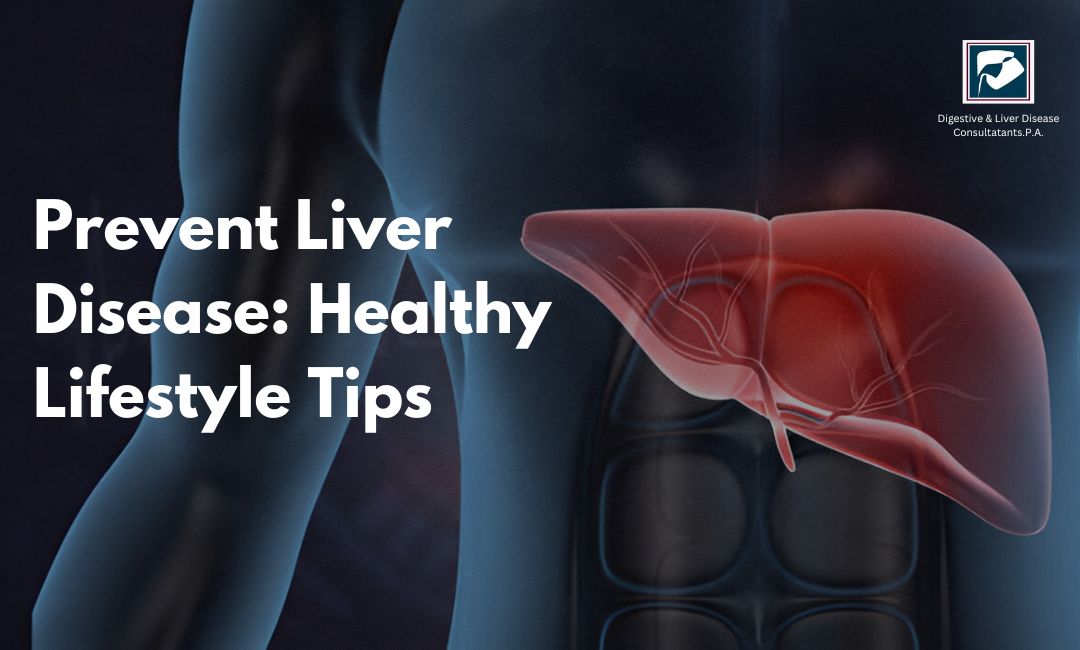Your liver is a vital organ that works hard every day to keep your body functioning smoothly. From filtering toxins out of your blood to helping with digestion and energy storage, it plays a crucial role in your overall health. However, liver disease is on the rise in the United States, affecting millions of people each year. The good news? Many liver diseases can be prevented by adopting a healthy lifestyle.
Here’s how you can protect your liver and keep it in top condition.
1. Maintain a Balanced Diet
What you eat has a direct impact on your liver health. Opt for a balanced diet rich in fruits, vegetables, whole grains, lean proteins, and healthy fats. These foods provide essential nutrients that support liver function and overall health.
Tips for a liver-friendly diet:
- Limit processed foods: Processed snacks, fast food, and sugary drinks are high in unhealthy fats and sugars, which can harm your liver over time.
- Choose healthy fats: Avocados, nuts, seeds, and olive oil are great sources of healthy fats that are easier for your liver to process.
- Avoid excess salt: High salt intake can lead to water retention and strain your liver. Use herbs and spices to flavor your meals instead.
2. Exercise Regularly
Physical activity isn’t just good for your heart and muscles—it’s essential for your liver, too. Regular exercise helps maintain a healthy weight, reduces fat buildup in the liver, and lowers the risk of non-alcoholic fatty liver disease (NAFLD).
How to get started:
- Aim for at least 30 minutes of moderate exercise (like walking, biking, or swimming) most days of the week.
- Incorporate strength training exercises twice a week to improve overall muscle tone and metabolism.
3. Limit Alcohol Consumption
Your liver processes alcohol, but excessive drinking can lead to liver damage, including cirrhosis, liver failure, and even cancer. If you choose to drink, do so in moderation.
What’s moderate drinking?
- For women: Up to one drink per day.
- For men: Up to two drinks per day.
If you’ve already experienced liver issues, it’s best to avoid alcohol altogether.
4. Stay Hydrated
Drinking enough water is essential for your liver’s detoxification processes. Proper hydration helps flush out toxins and supports overall organ function.
Hydration tips:
- Drink at least 8-10 glasses of water daily.
- Carry a reusable water bottle with you to stay hydrated on the go.
- Avoid sugary drinks and sodas, which can contribute to liver fat buildup.
5. Be Careful with Medications and Supplements
Over-the-counter medications, herbal supplements, and even some prescription drugs can be hard on your liver if not taken as directed. Acetaminophen (Tylenol) is a common culprit for accidental liver damage, especially when taken in high doses.
What you can do:
- Always follow the recommended dosage on medication labels.
- Avoid combining alcohol with medications unless approved by your doctor.
- Talk to your doctor before taking new supplements or herbal remedies.
6. Avoid Toxins
Exposure to environmental toxins can damage your liver. These toxins may come from household chemicals, pesticides, or industrial pollutants.
Protect yourself:
- Use gloves, masks, and proper ventilation when handling chemicals.
- Opt for natural cleaning products whenever possible.
- Wash fruits and vegetables thoroughly to remove pesticide residues.
7. Get Vaccinated
Hepatitis A and B are common viral infections that can damage the liver. Thankfully, vaccines are available to protect you from both.
Who should get vaccinated?
- Children as part of routine immunizations.
- Adults who are at higher risk, such as healthcare workers or those traveling to areas with high hepatitis prevalence.
8. Manage Chronic Conditions
If you have diabetes, high cholesterol, or high blood pressure, you’re at a higher risk of liver disease. Managing these conditions can help prevent further liver damage.
Steps to take:
- Follow your doctor’s advice for managing blood sugar, cholesterol, and blood pressure.
- Stick to a healthy diet and regular exercise routine.
- Monitor your liver health through regular check-ups.
9. Practice Safe Hygiene
Infections like hepatitis can spread through contaminated food, water, or bodily fluids. Practicing good hygiene helps reduce your risk.
How to stay safe:
- Wash your hands thoroughly, especially before eating and after using the bathroom.
- Avoid sharing personal items like razors or toothbrushes.
- Use protection during intimate activities.
10. Know the Warning Signs of Liver Disease
Early detection is key to managing liver disease effectively. Be aware of the symptoms that could signal liver problems:
- Fatigue
- Yellowing of the skin or eyes (jaundice)
- Dark urine
- Abdominal pain or swelling
- Loss of appetite
- Nausea or vomiting
If you experience any of these symptoms, don’t ignore them.
When to See a Doctor
Your liver health is critical to your overall well-being. If you’re concerned about your liver or have a family history of liver disease, schedule a check-up with a healthcare professional.
At DLDC (Digestive and Liver Disease Consultants), we specialize in diagnosing and treating liver conditions. Our experienced team is here to guide you toward better liver health. Whether you need routine testing, lifestyle guidance, or advanced care, we’re here to help.
Conclusion
Your liver works tirelessly to keep you healthy, but it needs your help to stay in top shape. By adopting a healthy lifestyle—eating well, exercising, avoiding toxins, and staying hydrated—you can protect your liver and reduce the risk of disease. Small changes can make a big difference.
Don’t wait—take control of your liver health today. Contact DLDC to schedule an appointment with one of our specialists.






